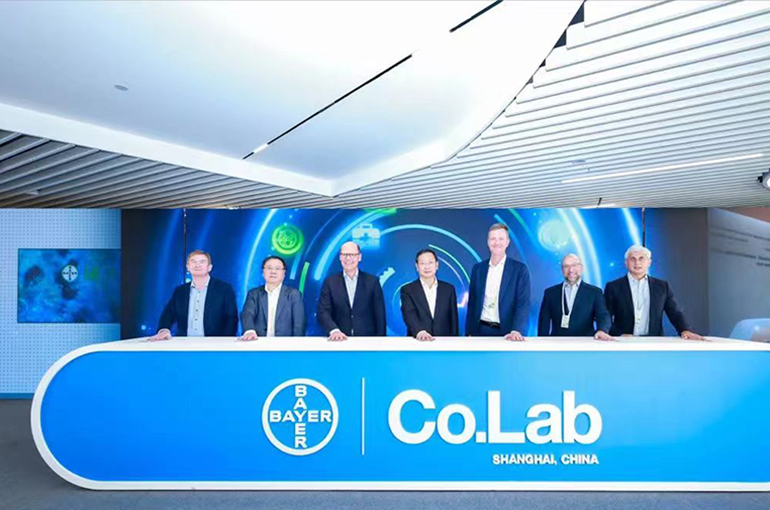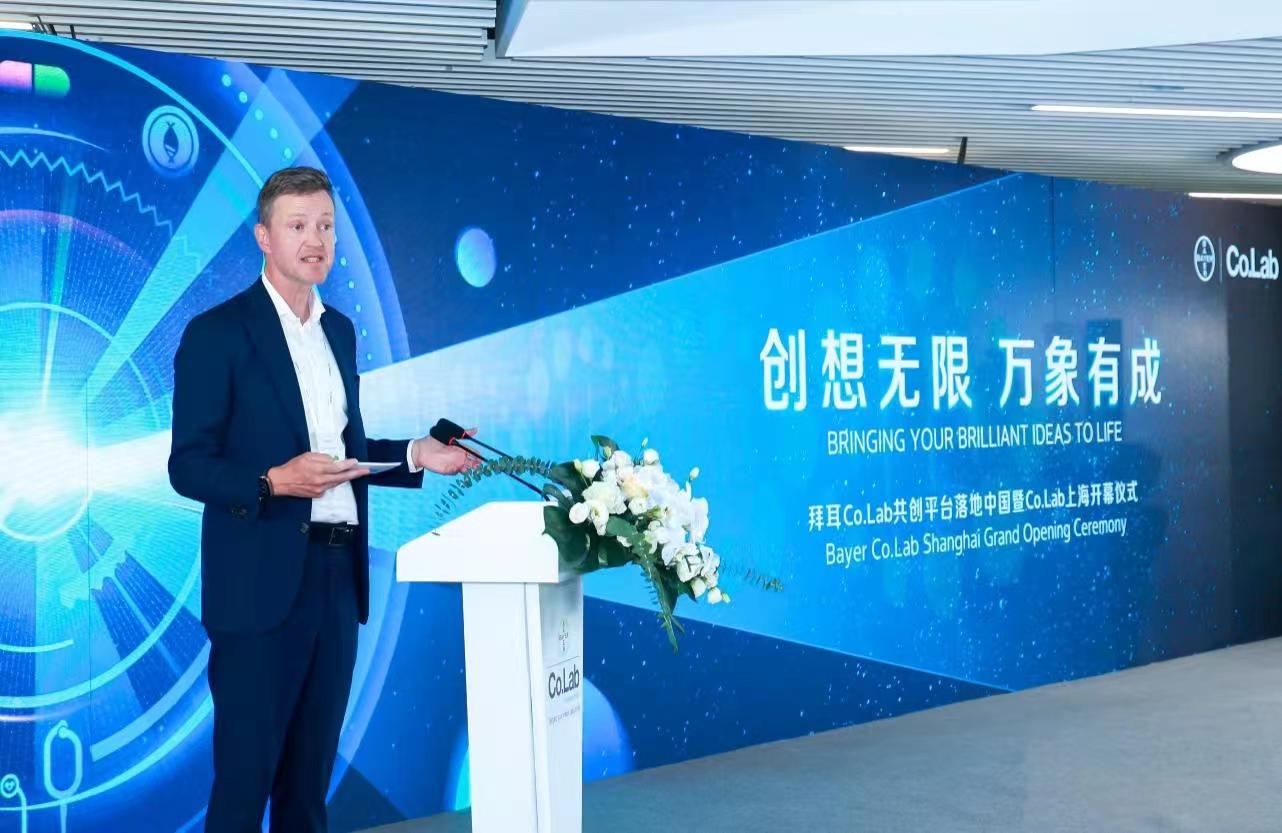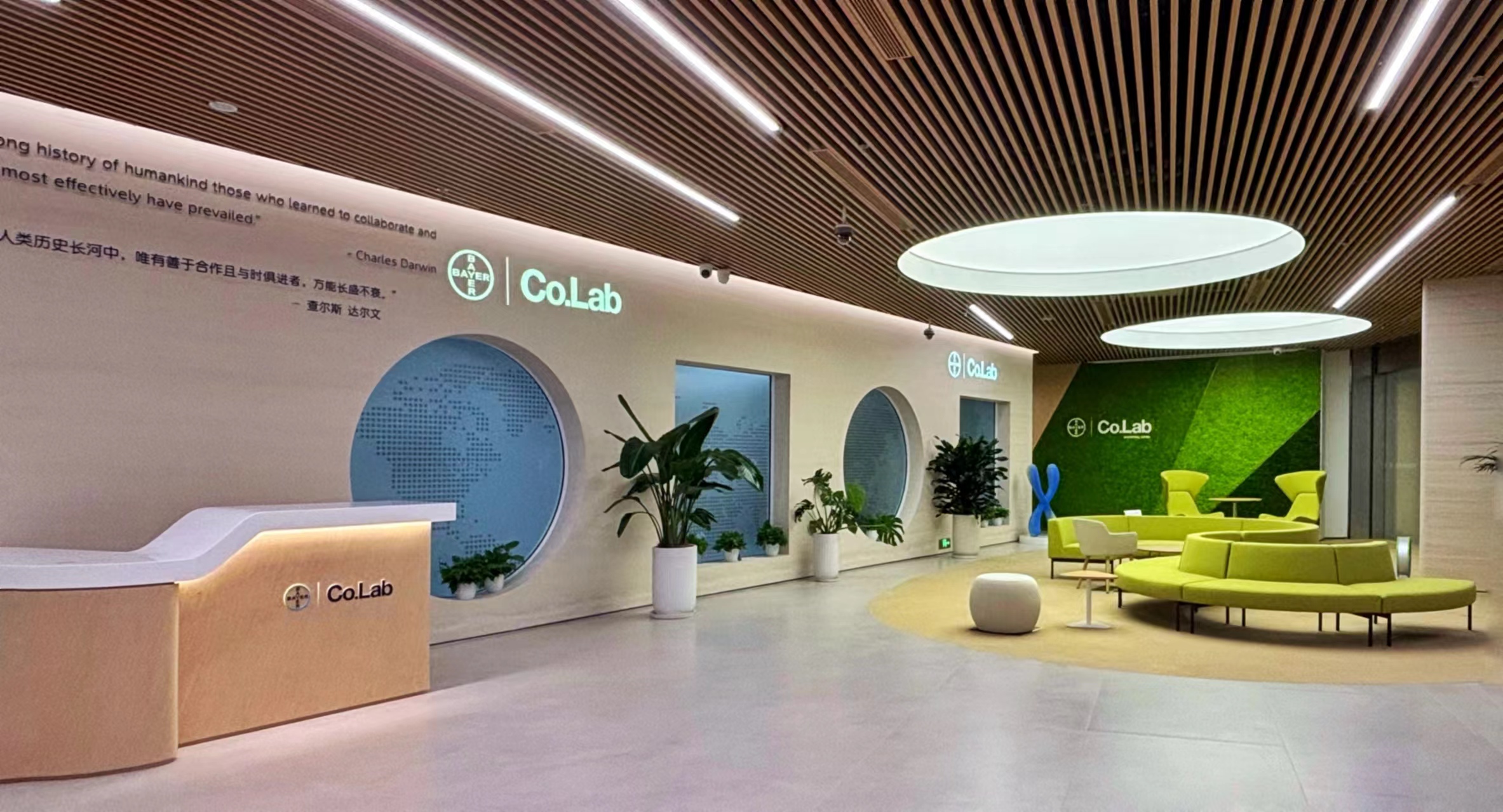 Germany’s Bayer Opens First Co.Lab in China
Germany’s Bayer Opens First Co.Lab in China(Yicai) Sept. 27 -- German pharmaceutical giant Bayer has inaugurated a life sciences co-creation platform in Shanghai, its fourth Bayer Co.Lab globally and first in China.
The Bayer Co.Lab China yesterday celebrated its grand opening in the Shanghai Innovation Park, or SH-INNO, located in Zhangjiang Science City in the city’s Pudong New Area.
Bayer Co.Lab is a pioneering global network of life science incubators focused on disruptive innovation and scientific breakthroughs. With strategic locations in Berlin, Cambridge, Kobe, and Shanghai, it connects early-stage entrepreneurs with world-class expertise, resources, and global networks, and empowers startups by providing state-of-the-art facilities, expert mentorship, and a vibrant community where they can transform groundbreaking ideas into powerful healthcare solutions.
"We are honored to bring the Bayer Co.Lab platform to China,” said Juergen Eckhardt, head of business development, licensing, and open innovation at Bayer's pharmaceutical division. “We hope that through multiparty collaboration, we can quickly identify and drive early-stage innovations to jointly explore solutions to major health problems and unmet medical needs.”

China is a hot spot for innovation, one of the largest pharmaceutical markets, as well as one of the markets where the most clinical trials are carried out, so it was a natural choice for Bayer to open a Co.Lab in the country, specifically in Shanghai, Eckhardt told Yicai.
"The Co.Lab in Shanghai is an initiative that hopefully will help solve that gap between great science and translation into actual therapies," Eckhardt noted. “I think the country needs more of that: translating great science into real products and into innovation.”
When asked about the distinctive features of the Co.Lab in Shanghai, Eckhardt explained that the facility is very similar to the three others, but its specific focus is on cell and gene therapy and oncology, areas in which China has showcased cutting-edge innovation.
Bayer Co.Lab China has already reached the final stage of contract negotiations with several candidates since it kicked off recruitment in April, said Huang Danjie, vice president of Bayer’s pharmaceutical division and head of its Collaborate to Cure Hub-China. "We hope to finalize and sign a rental agreement with one of the candidates around these days," she added.
Bayer Co.Lab China expects to recruit a total of eight to 10 biotech startups in the fields of CGT and oncology.
The Co.Lab in Shanghai will provide more than just lab space, said Seth Ettenberg, president and chief executive officer of Bayer's subsidiary BlueRock Therapeutics. From day one, Bayer will provide support, mentorships, and advice to recruits, helping them access the company's global drug development networks, he added.
"One of the greatest challenges in the CGT field continues to be manufacturing,” Ettenberg noted, adding that China's unique system allows innovation through new manufacturing methods, as well as clinical trials of innovative therapies.
Beyond Bayer Co.Lab

Successful Co.Lab partners will eventually grow and outgrow the space Bayer offers at the Co.Lab in Shanghai. Once this happens, they are forced to move out and find new space. But they can remain Bayer's partners afterward, Eckhardt said.
"Hopefully, with a few of these Co.Lab tenants, we will have business development and licensing transactions, maybe even mergers and acquisitions," he added.
Potential partners need to be a "good strategic fit with our own priorities," which include CGT, oncology, cardiovascular diseases, immunology and inflammation, rare diseases, and ophthalmology, Eckhardt pointed out.
"There needs to be a strategic fit with our own capabilities and commercial footprint and complementary technologies or pipeline assets that are a good fit for our own,” Eckhardt noted, adding that there also needs to be a cultural understanding.
Bayer has invested more than EUR3.5 billion (USD3.9 billion) to expand its technology platforms through acquisitions and partnerships globally. In China, the firm has deepened its strategic ties with well-known local academic institutions, such as Tsinghua University and Peking University, and local drugmakers, including WuXi AppTec and Jixing Pharmaceuticals.
On Sept. 7, China launched a pilot program allowing foreign companies to engage in the stem cell and gene diagnostics and therapy industry. "This is an important signal to us of the regulators being interested in and supportive of innovation," Ettenberg noted.
Editor: Futura Costaglione